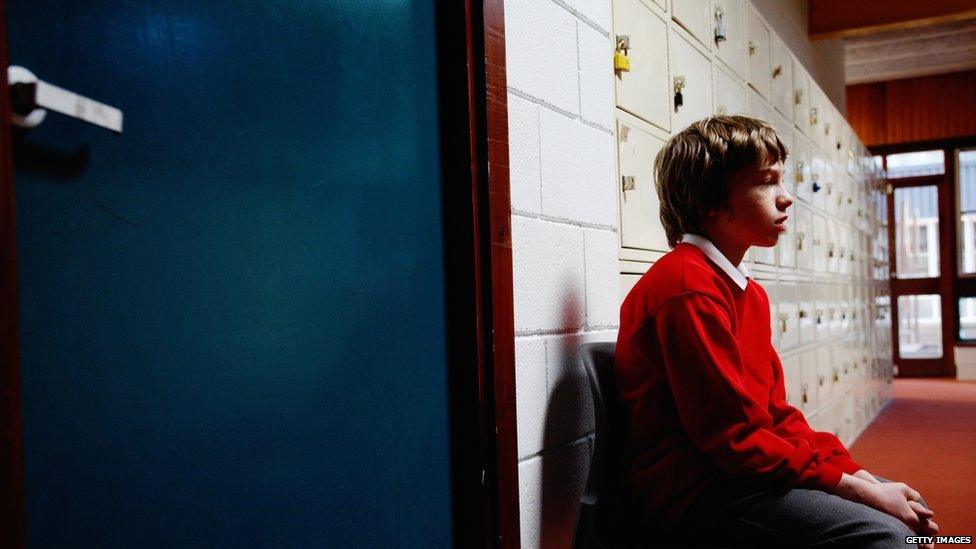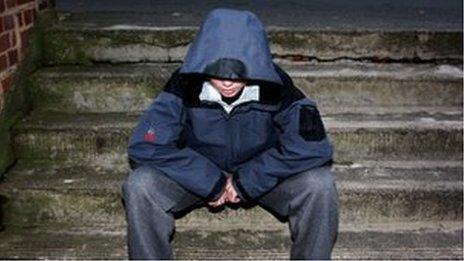Half of pupils expelled from school 'mentally ill'
- Published

Half of pupils expelled from England's schools have a mental health issue, according to analysis of official data.
The Institute of Public Policy Research suggests if excluded students with undiagnosed problems were included, the rate would be much higher.
This figure compares with one in 50 pupils in the wider population who have a mental health condition.
The government said it would be publishing plans to improve mental health services later in the year.
'Thrown out'
The research comes as the number of fixed term and permanent exclusions is rising.
Figures just published, external show that last year, some 6,685 pupils were excluded permanently from state primary, secondary and special schools.
Some 35 pupils were excluded every day in 2015-16 - five more daily than in the previous year.
Eight out of 10 permanent exclusions happen in secondary schools.
Here, the rate of permanent exclusions has increased from 0.15% in 2014-15 to 0.17% in 2015-16 - equivalent to 17 pupils per 10,000.
Overall, there were 346,000 permanent and fixed-term exclusions handed out to pupils at state-funded schools in 2014-15 - the highest number since 2009.
'Unjust system'
IPPR associate fellow Kiran Gill, founder of The Difference campaign on the issue, said: "Theresa May says she is committed to improving mental health of young people.
"Addressing the most vulnerable children being thrown out of England's schools is a good place to start.
"Because unequal treatment of mental health may be an injustice, but the discrimination of school exclusions is a crime."
Her campaign aims to break the link between school exclusion and social exclusion in "a burningly unjust system", and ensure vulnerable young people get the good quality schooling they need to change their lives.
"If the government is serious about real action on mental health, there needs to be dedicated funding and thought-through solutions rather than sticking plasters in the symptoms of the problem," Ms Gill added.
Official figures showed 99% of pupils permanently excluded from mainstream schools do not get the five good GCSEs required by many employers.
According to the IPPR report, nearly two-thirds of the prison population was excluded from school at some point.
'Concerning trend'
A Department for Education spokeswoman said: "Any decision to exclude must be lawful, reasonable and fair and we are clear permanent exclusion should only be used as a last resort, in response to a serious breach or persistent breaches of the school's behaviour policy.
"This government is committed to working with local authorities and schools to ensure children in alternative provision receive a high-quality education.
"We are strengthening the links between schools and NHS mental health staff and have announced plans for every secondary school to be offered mental health first aid training."
But Kevin Courtney, general secretary of the National Union of Teachers, said the rise in exclusions was a "concerning trend" and the DfE should consider what was driving the exclusions.
"NUT members tell us that as the curriculum gets narrower and children's experience of school is ever more focused on preparation for tests and exams, more students are becoming disengaged from school which in turn leads to problems with behaviour and mental health problems."
- Published6 October 2016

- Published24 April 2013
